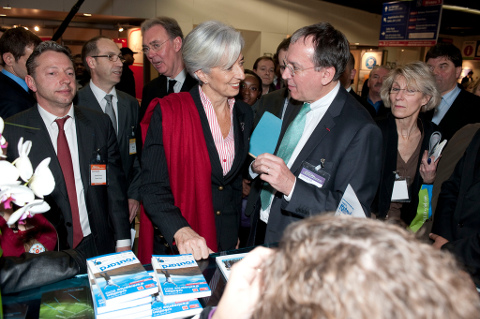
THERE is a coming series which shall explore and deal with Battistelli's political and/or high-class connections. It will soon be more evident and clear why these are relevant to the EPO situation. Battistelli is a public figure from a rich children's school (we have these in the UK also), so a lot of this information is in the public domain.
[PDF] with EPO interviews and quoted from it as follows, regarding politics (emphasis is ours):
I would like to make some comments about the EPO and the way it functions. In a very schematic and direct manner, the EPO is not politically driven even if all the contracting states are represented in it. A technical link between the EPO and the European Commission would be desirable even if some member states are not part of the EU. It would be desirable that a ministerial session be organized at the very same level of the EPO Administrative Council in order to define trends and to discuss a certain number of developments. By bringing politics (in the positive sense) into the Administrative Council and the EPO, public opinion will see the importance given by the political class to these issues.
The relevance of big business has to be taken into account. The EPO has really become the exclusive preserve of large corporations, and this reality should be admitted. It is probably quite unrealistic to think that the EPO can be relevant to the small inventor, although ironically the EPO`s distinctive logo represents an inventor`s thumbprint € intended thereby to indicate individuality and originality.
When the EPO has meetings/seminars to consider the patent system, who can afford to attend? Only those whose flights are paid for. Corporations have to make profits and they will make increasing demands for a system which appeals to them. Good civil servants € the guardians of the public good € will have to learn to say "no" and this may be difficult for the EPO, since it needs fees to maintain a system to pay for itself. So your initiative today deserves credit.
If I had a crystal ball and you were able to ask one question about the future, what would your question be?
Will governments in developed countries be able to detach from big industry`s influence and adopt a patent policy based on public interest rather than narrow industry interests?
There may be many unexpected events in the future, but the main issue for the patent system will depend on the answer to this question. Today governments in the developed world do not base their decisions on the interests of consumers and society at large. The main users of the system, the large companies, carry too much influence.
Any patent reform needs to take all the circumstances into account and resist the lobbying of the more powerful. Otherwise, we run the risk of discrediting the system even further.


inpi.fr):

Comments
pinguinpat
2015-12-12 11:51:28